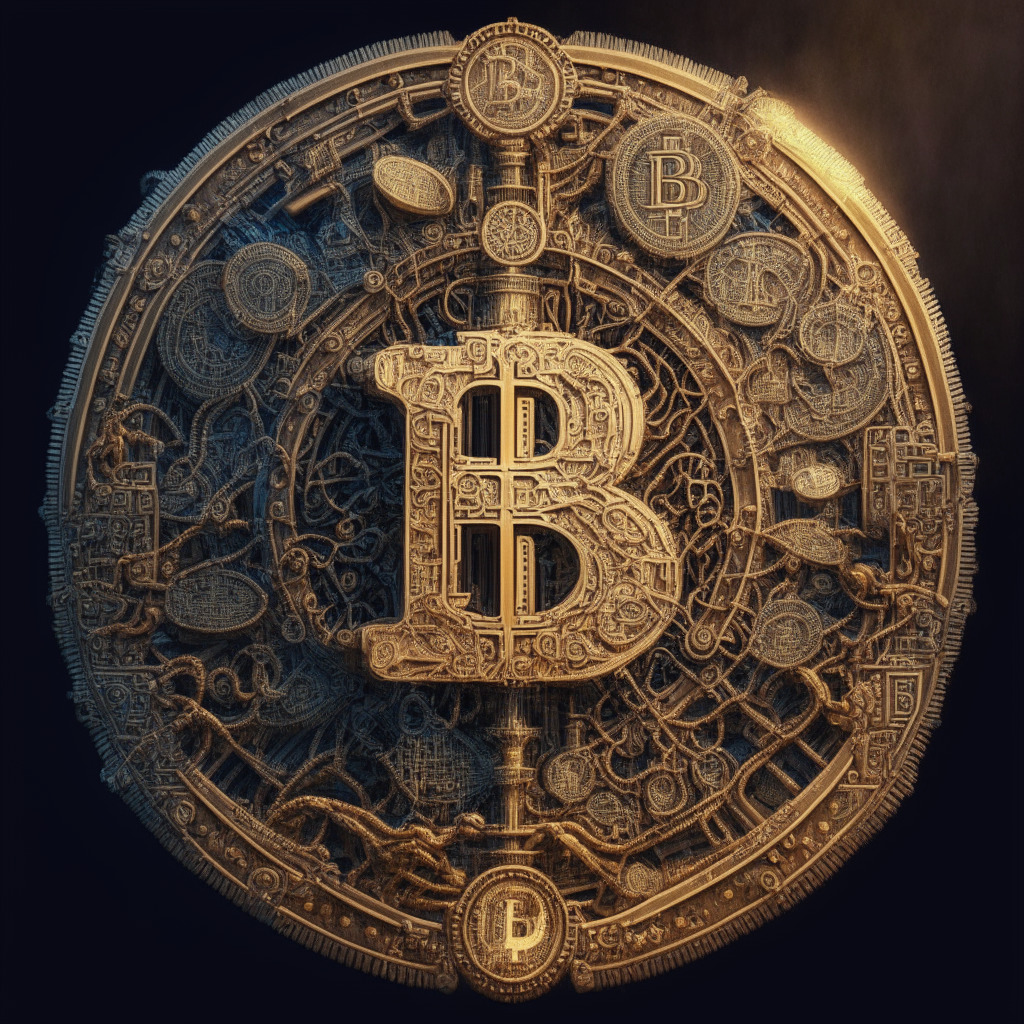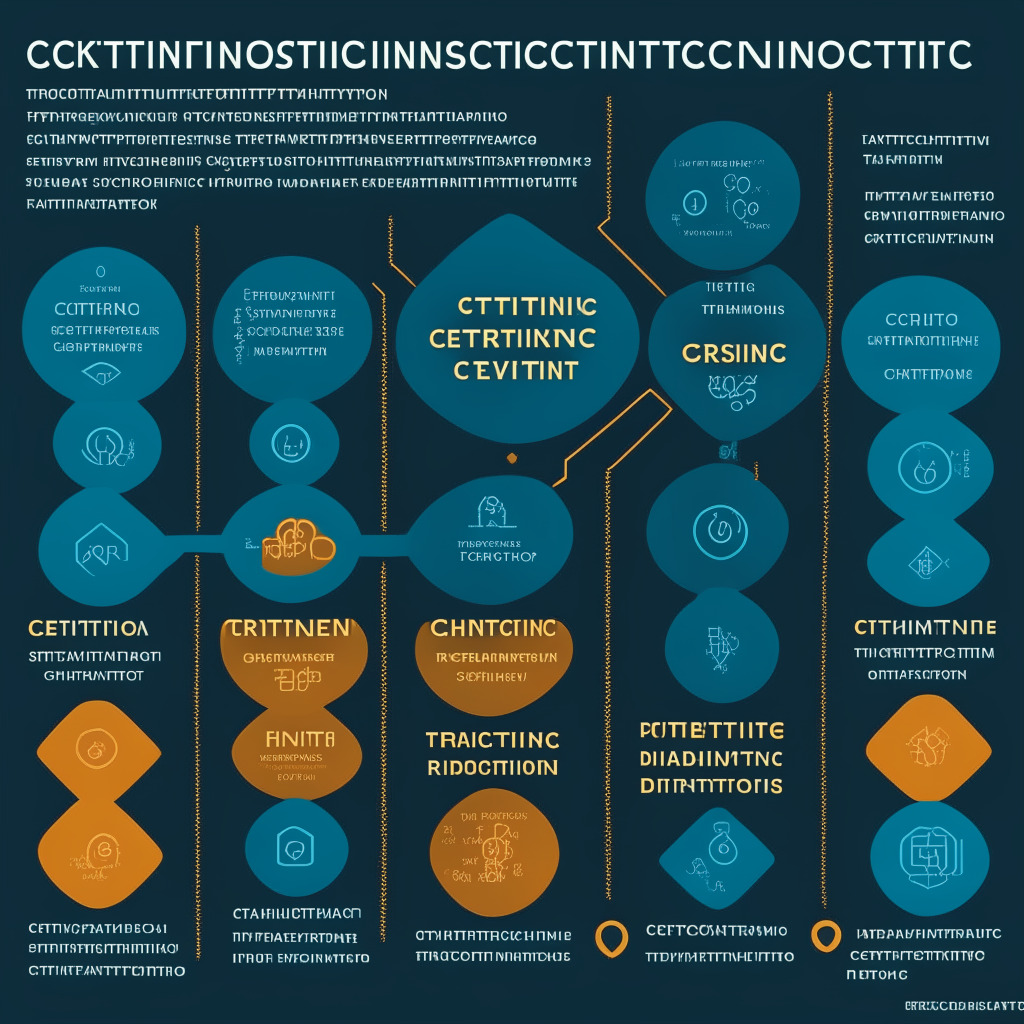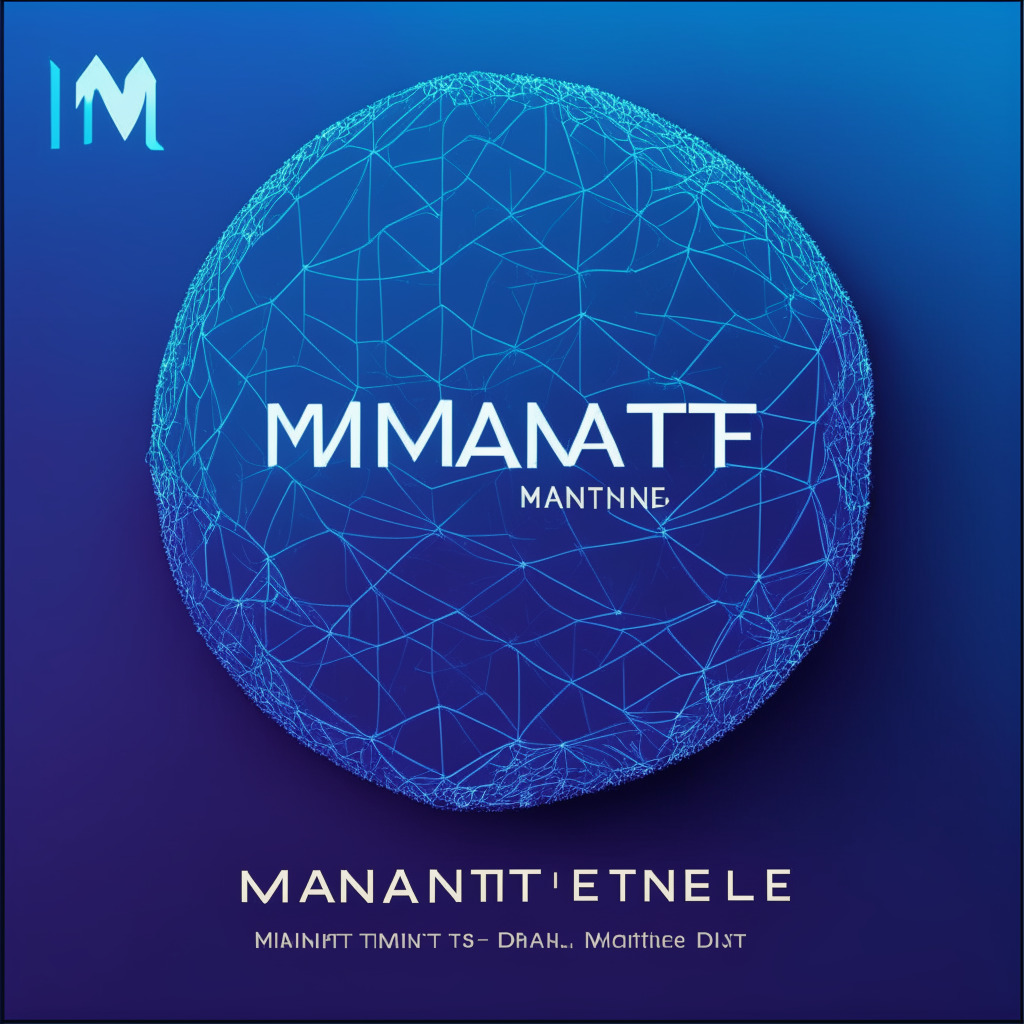Former Coinbase manager Ishan Wahi and his brother Nikhil Wahi settled with the US SEC over allegations of insider trading involving cryptocurrencies. The case highlights ongoing concerns about insider trading in crypto and the complexities of achieving a balanced regulatory framework.
Search Results for: SEPA
Ledger’s Recover Service: Securing Crypto Self-Custody or Compromising Privacy?
Ledger introduces “Recover”, a product for easier self-custody without compromising security by associating crypto wallets with ID documents. However, concerns over security and privacy have led to backlash, prompting Ledger to speed up their open-sourcing roadmap for increased verifiability.
South Korean Embezzlement Cases: A Wake-Up Call for Crypto Regulation and Public Trust
A South Korean civil servant received a one-year suspended prison sentence for embezzling $159,000 in public funds for crypto investments. This highlights the need for stricter regulation and oversight in the financial industry regarding the use of cryptocurrencies and blockchain technology.
Mysterious Ethereum Whale Moves 8,000 ETH: Security, Liquidation, or Confidence in Future?
A dormant Ethereum wallet from the 2015 ICO suddenly transferred its 8,000 ETH ($15.2 million) to a new address this past Saturday. The crypto community speculates on reasons behind the transfer, such as enhanced security or a potential large-scale liquidation, reflecting the market’s captivating dynamics and unpredictability.
Balancing Innovation and Regulation: The Pursuit of Successful Bitcoin ETFs
The quest for a Bitcoin ETF faces regulatory hurdles; however, three crypto-related ETFs achieved over 100% YTD returns. NEOS proposed two funds aimed at reducing downside risk, while Grayscale filed for a Global Bitcoin Composite ETF. The future of cryptocurrency and blockchain technology relies on balancing innovation and regulation, preserving financial security and stability.
Securing Blockchain Communities: Sei Network’s Humanode Face Verification & Privacy Debate
Sei Network has upgraded its Discord service, adding Humanode face verification to reinforce user verification and community integrity. This feature aims to distinguish genuine users from automated bots, reducing impersonation risks and fraudulent activities. However, privacy-conscious individuals may hesitate to undergo face verification, posing a potential adoption hurdle and raising concerns about its ultimate effectiveness.
Cardano’s Exciting Developments: Network Fixes, dApps, and Market Impact Explained
Cardano tackles key projects including network issues, decentralized exchange swaps, and dApps, leading to a 1% increase in ADA value. With improvements in nodes, networking, and ledger, the network’s performance sees a considerable boost, positively impacting the overall price of ADA.
EU Watchdog Eyes DeFi Regulations: Balancing Innovation and Financial Stability
The European Systemic Risk Board (ESRB) expresses concerns over the digital asset and decentralized finance (DeFi) sector, suggesting new regulations for crypto conglomerates and smart contracts. The ESRB warns about risks in crypto lending, staking, and high-leverage digital asset markets, potentially requiring DeFi developers to follow specific smart contract regulations.
Shaquille O’Neal Served Legal Papers Over FTX Bankruptcy & NFT Project: Celebrity Responsibility Debate
NBA legend Shaquille O’Neal faces legal challenges over the FTX bankruptcy and his Solana-based NFT project, Astrals, accused of being unregistered securities. The lawsuit raises questions about celebrity responsibility in the crypto and NFT realms, highlighting potential for abuse and manipulation.
Apple Takes a Bite of OpenAI’s ChatGPT Profits: A Dance between Pioneers and Big Tech
OpenAI’s ChatGPT iPhone app has quickly climbed App Store charts, with Apple endorsing it as a “must-have” app. Apple’s infamous 30% cut, or “Apple Tax,” on new iOS subscriptions means the tech giant profits from every ChatGPT Plus subscription, highlighting the complex interactions among AI pioneers, big tech, and regulators in this emerging revolution.
Strike’s El Salvador Move: Growth or US Regulatory Uncertainty Escape?
Strike establishes its international headquarters in El Salvador, highlighting the country’s friendly crypto atmosphere compared to the uncertain regulatory climate in the United States. The move showcases the importance of a favorable regulatory environment for the growth of the global crypto ecosystem.
Crypto Scams on the Rise: DF Fintoch’s $31.6M Rug Pull and the Need for Due Diligence
The crypto project DF Fintoch, impersonating Morgan Stanley, reportedly vanished with $31.6 million, highlighting the importance of vigilance and skepticism in the cryptocurrency market. The lack of regulation and oversight in the industry poses significant dangers, emphasizing the need for thorough research, due diligence, and holding projects accountable for a safer and more transparent ecosystem.
Binance Accused of Commingling Funds: Transparency vs Reputation in Crypto Exchanges
Reuters alleged that Binance, a prominent cryptocurrency exchange, has been commingling customer funds with company revenue, sparking concerns of a lack of internal controls. This scenario underscores the need for better regulations, increased transparency, and proper handling of customer funds in the cryptocurrency industry.
Binance Allegations: Analyzing User Fund Mixing Claims and Their Impact on Crypto Trust
Recent news alleges Binance mixed user funds with company revenue during 2020-2021, raising concerns regarding transparency and security of user assets. The matter highlights broader issues of trust and secure operations in the evolving crypto market.
Hong Kong’s SFC to Accept Crypto Trading Platform Applications: Pros, Cons & Implications
Starting June 1, Hong Kong’s Securities and Futures Commission (SFC) will accept applications for crypto trading platform licenses. The guidelines emphasize platform operators’ responsibility for due diligence and maintaining sufficient capital. Retail investors can access licensed platforms provided operators assess their risk understanding. Requirements for fining platforms breaching anti-money laundering regulations have been clarified, effective from June 1.
Crypto Trading Evolution: Hidden Road & Crossover Markets Partnership Pros and Cons
Customers of Hidden Road can soon access Crossover Markets’ crypto trading platform, helping institutions avoid conflicts of interest by separating trade execution from custody and brokerage services. The collaboration offers streamlined crypto trading but raises questions about liquidity and settlement times on an execution-only platform.
SEC vs Coinbase: Political Warfare Threatens Crypto’s Future and Demands Legal Clarity
The ongoing battle between the SEC, Coinbase, and other cryptocurrency firms highlights the intersection between politics and the legal system in shaping the future of digital asset markets. The outcome of these legal skirmishes will undoubtedly have a lasting impact on the cryptocurrency markets, making it essential for investors to stay informed.
Bitcoin Ordinals Boom: Surging Fees, Growing Popularity, and Unfolding Debate
The total network fees paid for Bitcoin Ordinal minting reached 1,414 BTC ($38.2 million) on May 20, a 700% increase from April 20. Bitcoin Ordinals, developed by cross-chain wallet BitKeep, assign unique numbers to Satoshis, enabling one-of-a-kind digital assets using Bitcoin. However, this approach comes with challenges and limitations, raising concerns over Bitcoin’s evolution and long-term impact on the blockchain ecosystem.
Meta’s Instagram Enters Decentralized Space: New App Competes with Twitter, Challenges Ahead
Meta, Instagram’s parent company, plans to launch a decentralized, text-based conversation app to compete with Twitter. The app will work in tandem with other decentralized social media platforms, broadening user reach and fostering independence from potential control by a single entity. However, concerns arise about limited oversight, problematic content, and ensuring user safety.
BitDAO Token Rebranding to Mantle: Benefits, Challenges, and Impact on Holders
BitDAO’s native token BIT is set to rebrand as Mantle after a community majority vote. The BIP-21 proposal aims to consolidate the BitDAO ecosystem under the “One brand, One token” philosophy in preparation for the launch of a new Ethereum-based layer-2 mainnet, developed by Mantle.
Unifying Mantle Network and BitDAO: Token Transformation and its Impact on the Blockchain Future
The recent proposal to unify branding between Mantle Network and BitDAO has led to the BIT token’s transformation to MANTLE, simplifying tokenomics and unifying the ecosystem prior to the layer-two mainnet launch. The change, approved through the BIP-21 proposal, aims to minimize confusion while optimizing the BitDAO ecosystem.
Biden’s 30% Crypto Mining Tax: Innovation Killer or Eco-Friendly Move? Pros & Cons Explored
Senator Cynthia Lummis opposes the proposed 30% tax on cryptocurrency miners in the Biden Administration’s budget for 2024, citing environmental benefits. The proposed tax has sparked debates surrounding innovation, blockchain development, and consumer protection, with concerns it may hinder cryptocurrency adoption in the US.
Coin Cafe’s $4.3M Repayment: A Call for Better Crypto Regulation or Stifling Innovation?
The recent Coin Cafe case, where the New York Attorney General secured a $4.3 million repayment for undisclosed fees, emphasizes the growing need for better crypto regulation. Striking a balance between investor protection and enabling innovation is crucial for the future development of cryptocurrencies and blockchain technology.
FTX Embed Acquisition Drama: Scandal, Fraud, and the $220 Million Price Tag Debate
FTX faces a legal challenge over its $220 million acquisition of stock-clearing platform Embed, with allegations of insufficient due diligence and inflated prices. The exchange seeks to recover millions from insiders and executives amidst bankruptcy filing, raising questions about transparency in high-stakes acquisitions.
Texas Crypto Exchanges Face New Reserve Rules: Consumer Protection vs. Business Impact
Texas recently approved House Bill 1666, enforcing “proof of reserves” rules for crypto exchanges to maintain sufficient assets for customer obligations. It also enforces new regulations on managing customer funds, increasing transparency and setting higher standards for platforms operating in Texas. However, pending Senate Bill 1751 could introduce restrictions on Bitcoin mining.
US Congress Urged to Form Digital Asset Commission: Balancing Innovation and Regulation
The Chamber of Digital Commerce urges the US Congress to establish legislation concerning digital assets and create a “Digital Asset and Blockchain Technology Solarium Commission.” This Commission would facilitate cooperation between government, industry, and academia, providing direction for the future of US blockchain and digital asset research and development.
Bipartisan Efforts to Regulate Stablecoins: Finding Common Ground in Crypto Legislation
Two distinct stablecoin bills from US House Financial Services Committee reflect differing perspectives among Democrats and Republicans. Despite differences, lawmakers aim to reach a bipartisan agreement for effective regulation of the burgeoning stablecoin market while protecting consumers and investors.
Ripple Acquires Metaco: The Future of Blockchain, CBDCs, and Custody Sector Opportunities
Ripple acquires Swiss custodian Metaco for $250 million to transform the cross-border payment market and explore Central Bank Digital Currencies and tokenized assets. This deal, amid evolving regulations and emerging opportunities, signifies an exciting time for blending traditional finance with the crypto landscape.
Terra Labs Legal Tangle: Crypto’s Lessons on Regulations and Market Stability
The bail deal for Terra Labs co-founder Do Kwon is now in question, as Montenegro’s State Prosecutor’s Office files an appellation against it. Kwon faces extradition to South Korea and criminal charges in the US, emphasizing the importance of regulatory adherence and transparency for crypto enthusiasts.
Bank Collapses Threaten Crypto: Pros and Cons of Direct Central Bank Access for EMT Issuers
This article discusses the risks associated with bank failures and the crypto market, highlighting the dependency of stablecoin issuers on banking partners for fiat settlement. It suggests granting e-money institutions direct access to central bank accounts, like in the UK and Lithuania, to increase safety, foster payment innovation, and reduce banking risks.
India’s Crypto Stakeholders Push for UPI Access: Pros, Cons, and Regulatory Challenges
India’s government and central bank are considering proposals to restore access to the Unified Payments Interface (UPI) for the cryptocurrency industry. The push comes amid challenges including harsh taxes and a “shadow ban” that cut off banking access to crypto exchanges. Proposals highlight the importance of UPI access for safeguarding virtual digital asset transactions and ensuring equal treatment for investors.































